
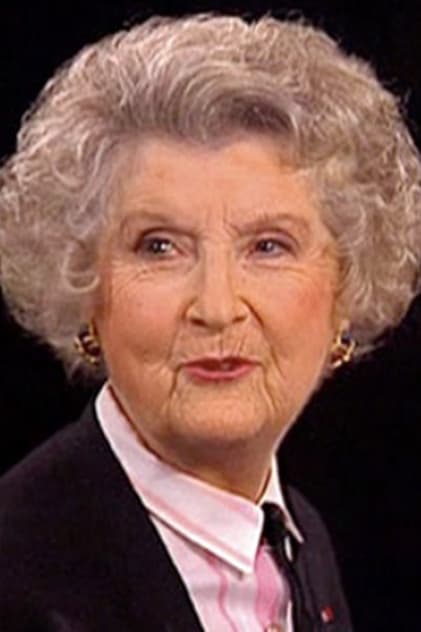
Mireille
Born: September 30, 1906
Died: December 29, 1996
in Paris, France
Died: December 29, 1996
in Paris, France
Mireille Hartuch (30 September 1906 – 29 December 1996) was a French singer, composer, and actress. She was generally known by the stage name "Mireille", it being a common practice of the time to use a single name for the stage.
Mireille was born in Paris to Jewish immigrant parents. Her father, Henri (Hendel) Hartuch came from Poland, and her mother, Mathilda Rubinstein, from Britain. Early on, Mireille was taught to play the piano and encouraged to pursue a theatrical and musical career by her mother, herself the child of a musical family. At the age of six she appeared in her first film in a walk-on role, for which she traveled to Britain. As a teenager she worked in theater and began composing music influenced by the great dance halls of Paris. In 1928 she began a collaboration with lyricist Jean Nohain (1900–1981) that led to considerable success for many years.
Fluent in English, she spent two years in the United States, first in New York City where she performed on Broadway, then in Hollywood, where she appeared in films. In 1931, she appeared in L'aviateur with Douglas Fairbanks, Jr. and Buster se marie with Buster Keaton. Meanwhile in France, contemporary stars Maurice Chevalier, Jean Sablon, and Charles Trenet (who credited Mireille with introducing "swing" to France), charted hits with her compositions, launching her songwriting career.
In 1933, she appeared in the French film Chourinette, though until 1951, when she appeared in Au fil des ondes, her career as a music-hall singer took precedence. In 1937, she married the writer and philosopher Emmanuel Berl. Three years later, the Nazi occupation forced the Jewish couple into hiding in Argentat in the remote Corrèze département of the Limousin region. There, Mireille was very active in the French Resistance and was head of the local liberation committee.
After the War, she befriended Jean Cocteau, Albert Camus, and André Malraux. In the 1950s, her friend, Sacha Guitry gave her the idea of opening the "Petit Conservatoire de la chanson" (Little Conservatory of Song) to use her talents to train young variety singers. The Petit Conservatoire produced a Sunday radio program beginning in 1955, and a television program from 1960 to 1974, nurturing the voices of a number of young singers who went on to lead successful careers, such as Françoise Hardy, Alain Souchon, Alice Dona, Hervé Cristiani, Yves Duteil, Frida Boccara and Colette Magny.
In her long and celebrated career, Mireille Hartuch composed more than six hundred songs and was twice decorated by the government for her contributions to French culture. She continued performing well into her old age. She lived at 36 rue de Montpensier in the 1st arrondissement of Paris for forty years.
Mireille Hartuch died in Paris in 1996 at the age of 90 and was interred there in the Cimetière du Montparnasse.
Source: Article "Mireille Hartuch" from Wikipedia in English, licensed under CC-BY-SA 3.0.
Mireille was born in Paris to Jewish immigrant parents. Her father, Henri (Hendel) Hartuch came from Poland, and her mother, Mathilda Rubinstein, from Britain. Early on, Mireille was taught to play the piano and encouraged to pursue a theatrical and musical career by her mother, herself the child of a musical family. At the age of six she appeared in her first film in a walk-on role, for which she traveled to Britain. As a teenager she worked in theater and began composing music influenced by the great dance halls of Paris. In 1928 she began a collaboration with lyricist Jean Nohain (1900–1981) that led to considerable success for many years.
Fluent in English, she spent two years in the United States, first in New York City where she performed on Broadway, then in Hollywood, where she appeared in films. In 1931, she appeared in L'aviateur with Douglas Fairbanks, Jr. and Buster se marie with Buster Keaton. Meanwhile in France, contemporary stars Maurice Chevalier, Jean Sablon, and Charles Trenet (who credited Mireille with introducing "swing" to France), charted hits with her compositions, launching her songwriting career.
In 1933, she appeared in the French film Chourinette, though until 1951, when she appeared in Au fil des ondes, her career as a music-hall singer took precedence. In 1937, she married the writer and philosopher Emmanuel Berl. Three years later, the Nazi occupation forced the Jewish couple into hiding in Argentat in the remote Corrèze département of the Limousin region. There, Mireille was very active in the French Resistance and was head of the local liberation committee.
After the War, she befriended Jean Cocteau, Albert Camus, and André Malraux. In the 1950s, her friend, Sacha Guitry gave her the idea of opening the "Petit Conservatoire de la chanson" (Little Conservatory of Song) to use her talents to train young variety singers. The Petit Conservatoire produced a Sunday radio program beginning in 1955, and a television program from 1960 to 1974, nurturing the voices of a number of young singers who went on to lead successful careers, such as Françoise Hardy, Alain Souchon, Alice Dona, Hervé Cristiani, Yves Duteil, Frida Boccara and Colette Magny.
In her long and celebrated career, Mireille Hartuch composed more than six hundred songs and was twice decorated by the government for her contributions to French culture. She continued performing well into her old age. She lived at 36 rue de Montpensier in the 1st arrondissement of Paris for forty years.
Mireille Hartuch died in Paris in 1996 at the age of 90 and was interred there in the Cimetière du Montparnasse.
Source: Article "Mireille Hartuch" from Wikipedia in English, licensed under CC-BY-SA 3.0.
Movies for Mireille...


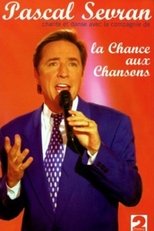


Title: La Chance aux chansons
Character: Self (archive footage)
Released: March 26, 1984
Type: TV



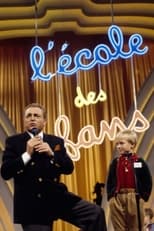
Title: Fan School
Character: Self
Released: January 30, 1977
Type: TV
Host Jacques Martin invites different talented children from various backgrounds to showcase their beautiful voices. The participants entertain and wow the audience with their lovely performances.




Title: Les Rendez-vous du dimanche
Character: Self
Released: January 12, 1975
Type: TV
A talk show presented by Michel Drucker

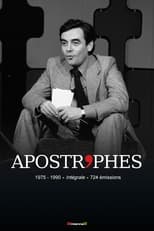
Title: Apostrophes
Character: Self
Released: January 10, 1975
Type: TV
Apostrophes was a live, weekly, literary, prime-time, talk show on French television created and hosted by Bernard Pivot. It ran for fifteen years (724 episodes) from January 10, 1975, to June 22, 1990, and was one of the most watched shows on French television (around 6 million regular viewers). It was broadcast on Friday nights on the channel France 2 (which was called "Antenne 2" from 1975 to 1992). The hourlong show was devoted to books, authors and literature. The format varied between one-on-one interviews with a single author and open discussions between four or five authors.


Title: Midi Première
Character: Self
Released: January 6, 1975
Type: TV
Midi Première is a French variety show presented by Danièle Gilbert, directed by Jacques Pierre and broadcast from January 6, 1975 until January 1, 1982 on TF1. The program was generally broadcast between 12:15 p.m. and 12:55 p.m., then giving way to the 1:00 p.m. TV news. However, the broadcast schedule could change, depending on the guests, and the setting where the recording of the program was shot. Certain performances by artists who have become cult like the one where Ringo jostles with a demonstrator in interpretation (1977), that of Dalida with the title There is always a song with the soundtrack that does not start, twice, at the right speed (1978), Claude François and his Clodettes, who, in the provinces, are unable to join "the set" in order to interpret his song, the latter being taken by the crowd of delirious fans (summer 1977) . The group Supertramp performed there with the title "Dreamer" on March 8, 1975.






Title: Le Grand Échiquier
Character: Self - Main Guest
Released: January 12, 1972
Type: TV





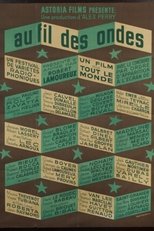
Title: Over the waves
Character: Self
Released: May 11, 1951
Type: Movie
Panorama of the programs and hosts who made the heyday of radio in the 1950s.

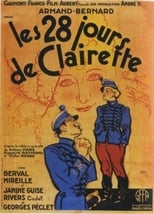
Title: Les 28 jours de Clairette
Released: May 10, 1933
Type: Movie
Clairette learns that Bérénice, a former mistress, is pursuing her husband in the army where he is recalled. She puts on the sergeant's uniform and after a few entanglements reconciles with her husband while Bérénice consoles herself with the captain.


Title: Une faim de loup
Released: November 18, 1932
Type: Movie
René is hungry and has no money. He returns home, where only bills await him. Her neighbor Lulu is a film actress. She tries to get him hired as an extra on the set where she herself works. It is a film about gastronomy. He thinks he can finally get his fill of food, but bad luck, he plays the role of an old man who pushes her away. At the end of the day, he returns home and, passing in front of his landlady who receives, goes to mime them all that is supposed to have taken place during the filming by eating all the food offered to his appetite. After this meal, he will invite his neighbor Lulu to come to his place.

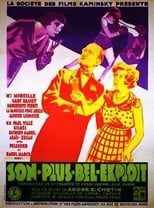
Title: Son plus bel exploit
Released: April 1, 1932
Type: Movie
Monsieur Loyal, bailiff by profession, is dispatched to a grub by an actress. Reason: she accuses Micheline, a young singer who works there, of stealing her songs. But our usher is nonetheless a man, and Micheline exerts her charms on him so well that he gives him shelter for the night, and finds him a new job at the Mirador, a cabaret that has just opened.

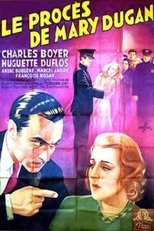
Title: The Trial of Mary Dugan
Character: The little theater girl
Released: November 6, 1931
Type: Movie
